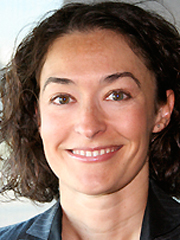Modeling of biological networks and cellular processes
Cells use networks of interactions between molecules and macromolecular assemblies to sense and respond to their environment. Biological networks are extensively regulated and control fundamental cellular processes, including gene expression and signal transduction, in all types of organisms, from bacteria to humans. Disruption of the regulation mechanisms is responsible for many human diseases, such a cancer, diabetes, and autoimmune disorders.
Leonor Saiz’s research involves the study of the dynamics of biological networks at the cellular and molecular level. Dr. Saiz group combines computational and theoretical approaches together with experimental data to (1) understand how cellular behavior arises from the physical properties and interactions of the cellular components; and to (2) infer detailed molecular properties, such as the in vivo DNA mechanics, from the cellular physiology. By developing novel methodologies that consider multiple spatial and temporal scales and multiple levels of biological organization, including atomic, molecular, and cellular, our work has provided new avenues to integrate the molecular properties of cellular components directly into the dynamics of cellular networks. We focus on gene regulation and signal transduction networks, as well as their combined networks, to understand their regulatory mechanisms for proper cell function and how regulation is disrupted in cancer and other diseases. The work of Leonor Saiz group is highly interdisciplinary, drawing from techniques and tools from physics, chemistry, mathematics, computer science, biomedicine, and engineering. The ultimate goal is to understand and follow the impact of molecular perturbations in the cellular components, such as a mutation in a protein or interventions with small molecules or drugs, through the different cellular processes up to the cellular behavior; one of the major challenges of modern biomedical sciences.





